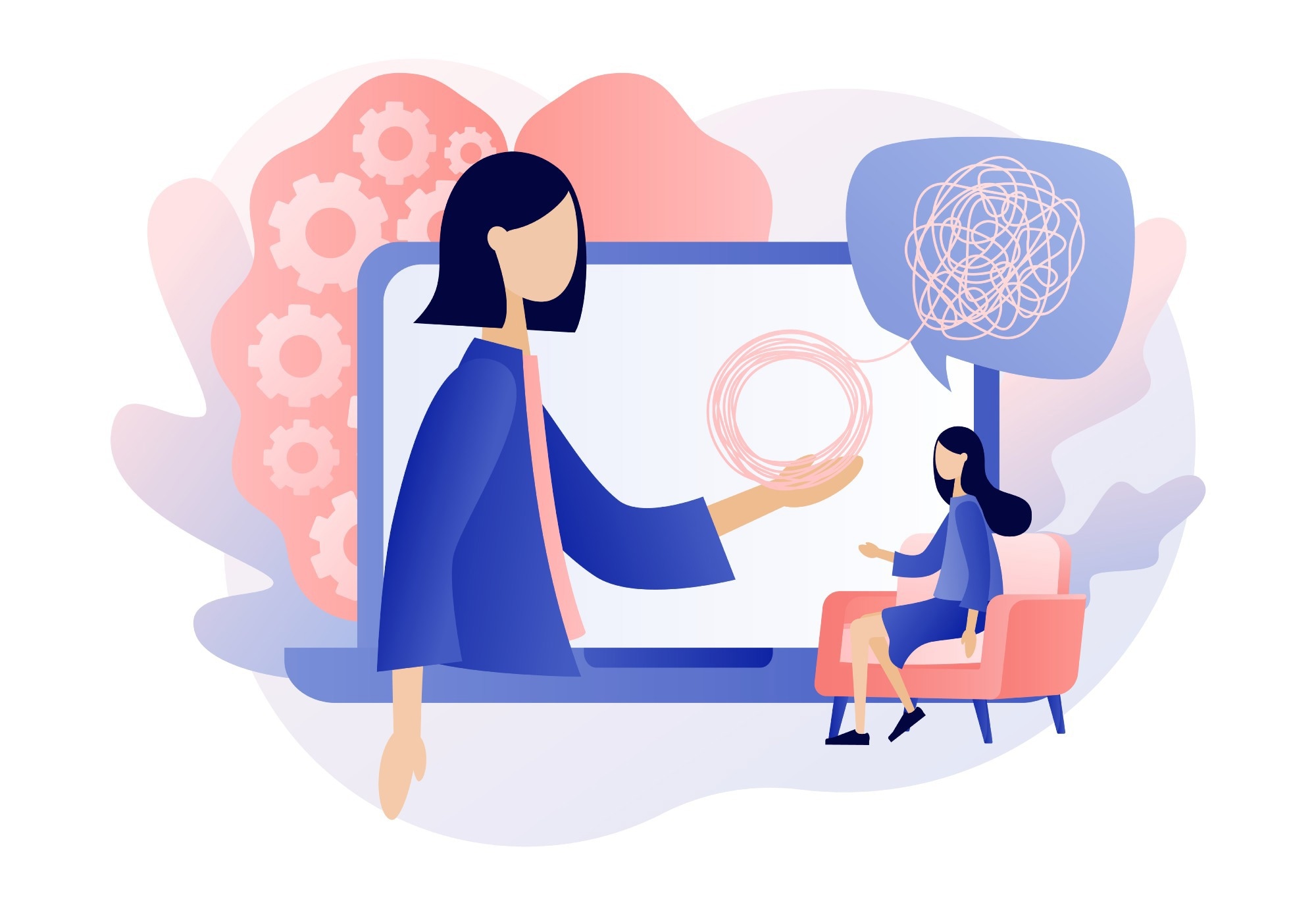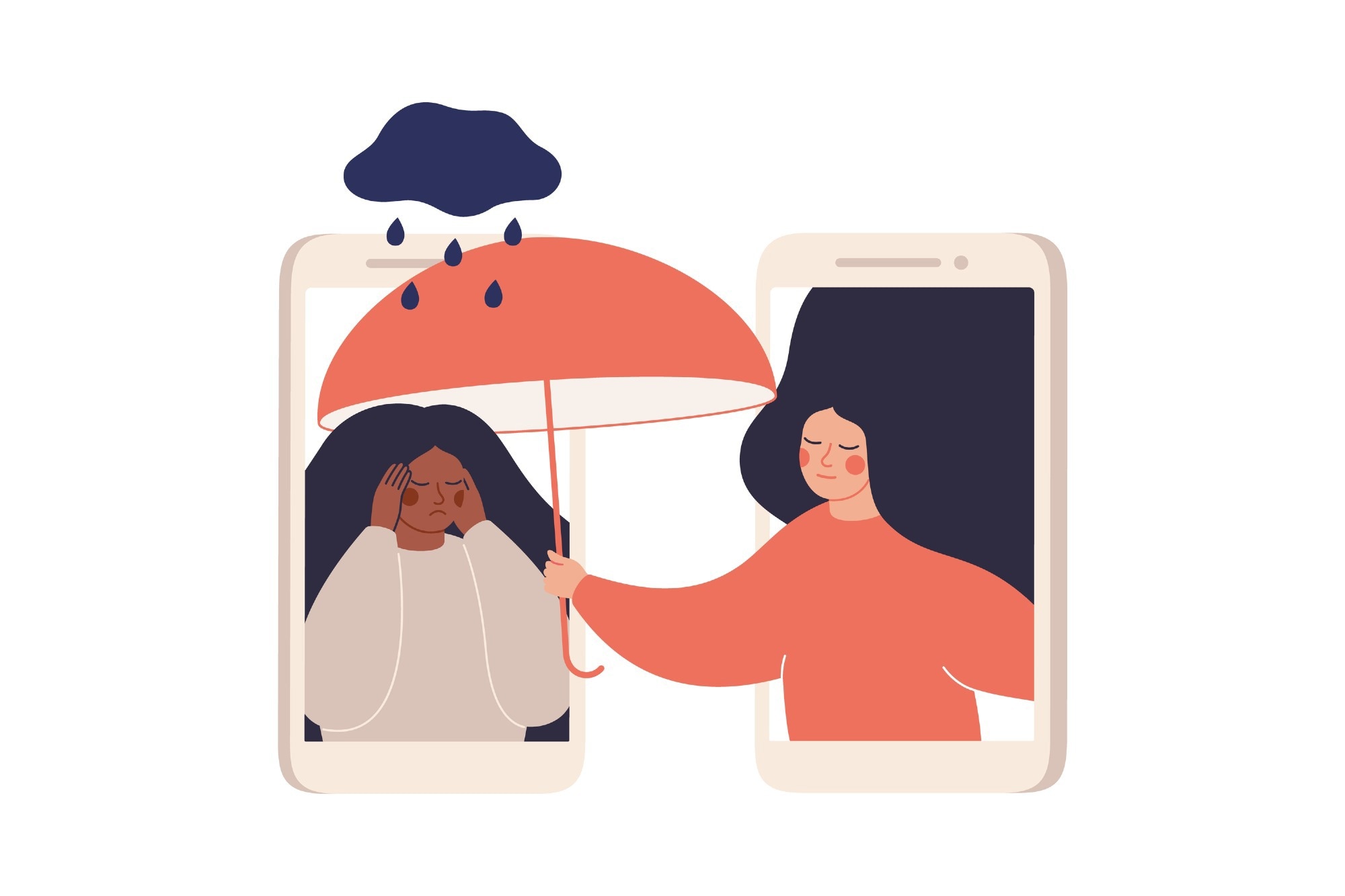What are the Applications of Technology-Based Mental Health Interventions?

Introduction
Mental health Interventions for young people
Using digital interventions to monitor older people's mental health
Technological intervention in a social work context
Hazards of technology-based interventions
References
Further reading
Mental health disorders are becoming increasingly frequent in the general population. Mental health disorders are largely associated with improved life expectancy and end-of-life diseases such as dementia and Alzheimer’s, with over 15% of those over 60 suffering from some form of mental disorder.
Technological devices such as mobile phones, computers, and the internet can provide digital interventions for various mental health-related issues, providing a regular contact point with professionals, reminding patients to take medication, and providing brain training exercises that help to alleviate the symptoms of various mental health disorders.

Digital interventions have shown great promise for numerous mental health disorders. However, the generational gap in technology use may leave those most needing mental health intervention vulnerable, namely, the elderly.
Some of the technology-based tools available to physicians when tracking symptom expression and behavioral change, medication response, and disease progression in mental health disorders will be discussed in this article, along with those that can potentially be used directly as therapeutic agents.
Mental health Interventions for young people
University students show a high risk of psychological problems such as anxiety, depression, and stress owing to academic and social pressures. Though most universities offer various forms of assistance to their students, the student may be required to seek additional help. Technological interventions can provide a passive outlet for those with mental health disorders to seek help via a more discreet route than traditional therapies.
Younger individuals frequently choose online options when seeking healthcare advice. Online counseling can be an excellent initial method of mental health triage, where more serious cases can be referred to more traditional mental health services.
There is a significant economic incentive for the widespread adoption of such mental health triage centers, which could improve mental health disorder detection and treatment and streamline existing mental health services, freeing up outpatient clinics and directing patients to where they can receive the most suitable assistance.

Using digital interventions to monitor older people's mental health
While technology-based mental health interventions have proven useful in promoting patient compliance and reporting, a significant subset of those experiencing mental health disorders rarely engage in online activity and do not regularly use devices such as tablets or smartphones. For example, a survey of those over 65 in the USA showed that only 67% had internet access, dropping to only 49% in those over 50 among 16 European Union countries.
The reason for the lack of adoption of new technologies amongst older individuals has been related to several factors: retired individuals are not required to adopt new devices into their work and therefore do not purchase or regularly use them; learning new things becomes more difficult with age, perhaps intimidating those with only passing interest, and lower technological socialization amongst older generations inhibits uptake.
Even so, where adequate training and teaching are provided to older adults regarding the use of technology-based mental health interventions, programs have shown great success in promoting engagement, with, unsurprisingly, online-only-based attempts at older generation education and mental health intervention showing poorer engagement. The advantages of digital health interventions for older adults could be tremendous, avoiding travel and providing access to regular mental health care for those in remote communities.
Outside of virtual counseling, simple technological assistance in the form of reminders and alarms could also be invaluable to elder individuals, promoting good medication and lifestyle management. Specifically designed applications for these tasks are further advantageous over analog lists or notes because technology can be utilized to record compliance. For example, the application could record a short video of the patient taking medication to remind them of when they last took their prescriptions so that physicians can be confident when making changes to dosage.


Technological intervention in a social work context
Technology-based interventions are increasingly being adopted in social work settings, allowing for improved patient conditions and compliance monitoring. Many of the benefits already discussed can be applied to those receiving aid from social services, particularly the opportunity for enhanced remote communication.
However, technological interventions may also potentially be applied to disease diagnosis and treatment. For example, cognitive training exercises delivered by computer or smartphone have shown great promise in alleviating cognitive decline in those with Alzheimer’s disease, with clinical evidence of improved blood flow to the brain.
Similarly, virtual reality and other interactive experiences have successfully treated depression, anxiety, post-traumatic stress disorder, and several other psychological conditions, which, as a non-pharmaceutical intervention, can be applied and monitored by social workers.

Hazards of technology-based interventions
Around each of the discussed advantages of utilizing technology-based mental health interventions, various potential hazards and concerns arise, primarily regarding data protection. Data must be stored or transmitted securely and without risk of interception. Besides the direct risk of identity fraud should the data be compromised, even the continuous and passive collection of data considered non-identifying must be carefully monitored. For example, data thought confidentially submitted by users could be utilized by marketing companies to plan demographically targeted advertising, or governmental organizations could use the data to draft policies that segregate a subset of the population.
As therapeutic digital mental health interventions, such as virtual reality software or specialized video games, have shown efficacy in alleviating various mental health disorders, it is conceivable that poorly designed examples may harm a patient's well-being and ultimately produce a decline in mental health or otherwise stall proper recovery.
Given this, such therapeutic options must be thoroughly investigated in terms of both short- and long-term efficacy, considering the requirement of continued and unfettered access to therapeutic software.
While online resources can be extremely useful in providing help and advice to those with mental health conditions, the potential unreliability of generic websites or social media platforms poses a potentially lethal hazard, where either incorrect but well-meaning or intentionally malicious advice is given equal footing to empirically evidenced and thoroughly researched science.

References
- Seifert, A., Reinwand, D. A., & Schlomann, A. (2019). Designing and using digital mental health interventions for older adults: being aware of digital inequality. Frontiers in psychiatry. doi: https://doi.org/10.3389/fpsyt.2019.00568 https://www.frontiersin.org/articles/10.3389/fpsyt.2019.00568/full
- Borle, P., Boerner-Zobel, F., Voelter-Mahlknecht, S., Hasselhorn, H. M., & Ebener, M. (2021). The social and health implications of digital work intensification. Associations between exposure to information and communication technologies, health and work ability in different socioeconomic strata. International Archives of Occupational and Environmental Health. doi: https://link.springer.com/article/10.1007/s00420-020-01588-5. https://pubmed.ncbi.nlm.nih.gov/33084928/
- Ramsey, A. T., & Montgomery, K. (2014). Technology-based interventions in social work practice: A systematic review of mental health interventions. Social Work in Health Care. doi: https://doi.org/10.1080/00981389.2014.925531
- Beishon, L., Evley, R., Panerai, R. B., et al. (2019). Effects of brain training on brain blood flow (The Cognition and Flow Study—CogFlowS): protocol for a feasibility randomised controlled trial of cognitive training in dementia. BMJ Open. doi: https://doi.org/10.1136/bmjopen-2018-027817
Further Reading
- All Mental Health Content
- World mental health support and the effect of stigma and discrimination
- A Guide to Coping with Change
- Managing and Reducing Stress
- Analyzing the Stigma Surrounding Mental Health
Last Updated: Nov 17, 2022

Written by
Michael Greenwood
Michael graduated from Manchester Metropolitan University with a B.Sc. in Chemistry in 2014, where he majored in organic, inorganic, physical and analytical chemistry. He is currently completing a Ph.D. on the design and production of gold nanoparticles able to act as multimodal anticancer agents, being both drug delivery platforms and radiation dose enhancers.
Source: Read Full Article